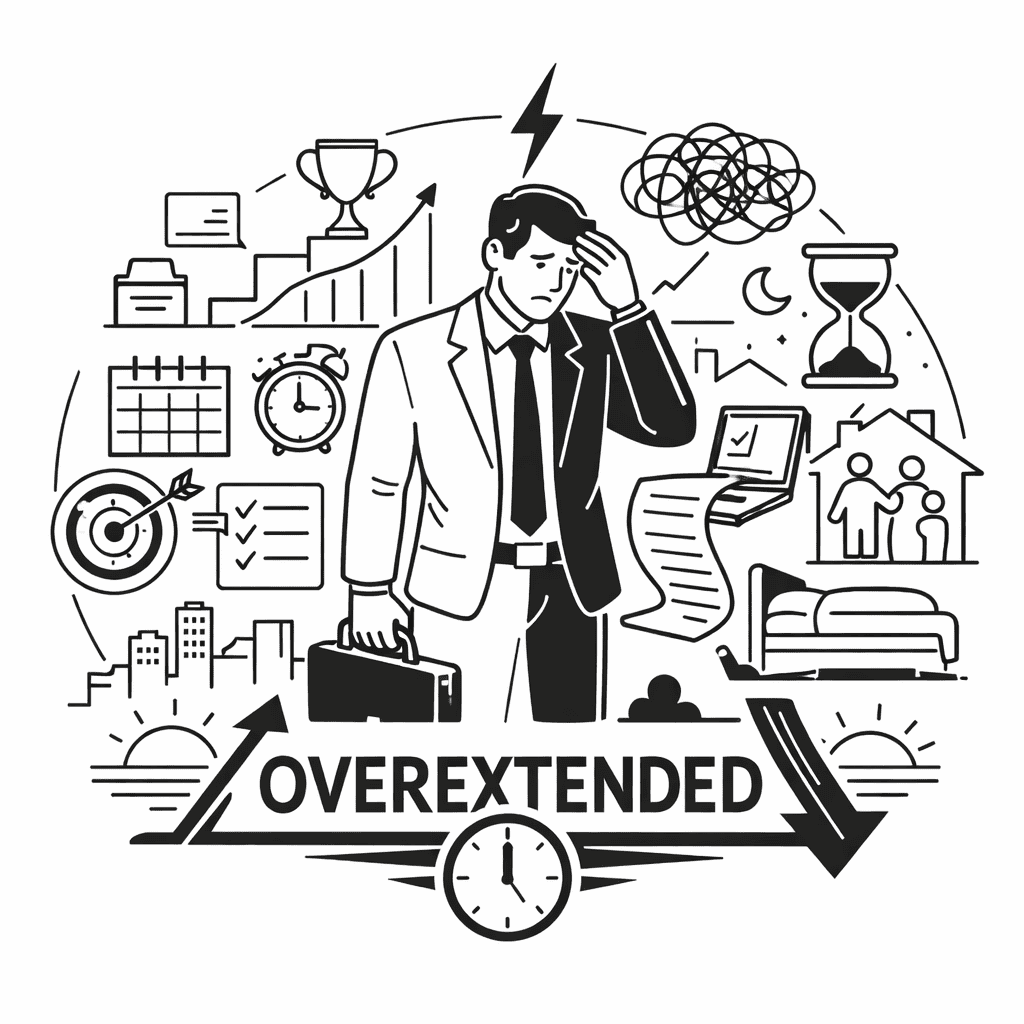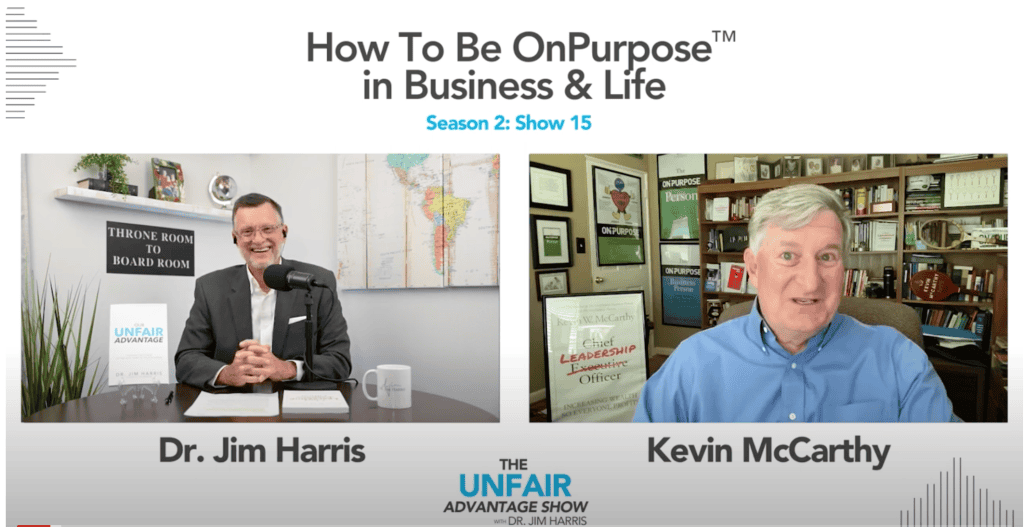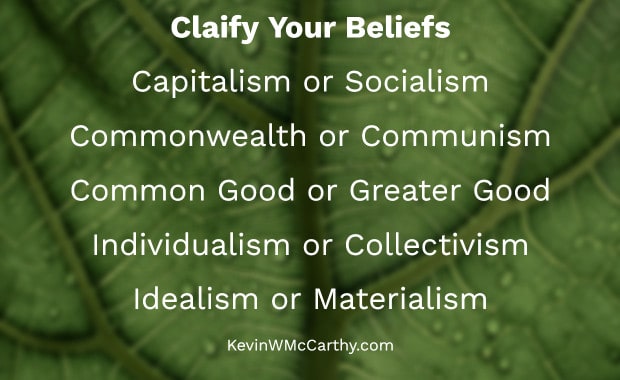Part 3 of the Success Without Selling Series
There’s a moment most A-list, high performers don’t see coming. You’re still succeeding. Still producing. Still getting results. From the outside, nothing looks broken.
And yet something quietly shifts.
The work that once energized you begins to drain you. The life you built starts demanding more than it gives back. You wake up tired before the day even begins. You move faster, but feel slower inside. You’re doing good work — but you’re no longer certain it’s your work.

The work that once energized you begins to drain you. The life you built starts demanding more than it gives back. You wake up tired before the day even begins. You move faster, but feel slower inside. You’re doing good work, but you’re no longer certain it’s your work.
At first, you tell yourself this is just a season. Another sprint. Another quarter. Another push. But seasons come and go. Your overextension stays and grows increasingly more demanding.
When will your breaking point happen?
Here’s the paradox: you’re NOT overextended because you’re doing the wrong things. You’re overextended because you’ve been doing too many right things for too long — without a clear personal strategy for renewal, recovery, or recalibration. You’re selling out your self to your work, cause, or ministry.
That’s the subtle trap of success.
Early in your career, hustle served you well. Hard work built credibility. Responsiveness created opportunity. Reliability opened doors. You learned to say “yes,” to deliver, to perform, to show up.
And it worked.
But the habits that helped you rise can eventually become the habits that wear you down.
You become efficient.
Then efficient becomes relentless.
Then relentless becomes exhausting.
Before you realize it, your life is driven more by momentum and profit than by meaning and purpose.
This is where high performers get stuck — not in failure, but in success without order.
You’re not lost. You’re overloaded.
You’re not drifting. You’re stretched too thin.
You’re not lacking discipline. You’re lacking direction.
Even Jesus knew how to take a break. Most overextended people don’t need more effort. They think they need more rest. What they need is whole life strategy. Think of it as way to discharge in order to recharge.
In the On-Purpose way of thinking, overextension is usually a symptom of misalignment between four things:
Your Purpose — why you exist.
Your Vision — where you’re going.
Your Missions — how you spend your time.
Your Values — what truly matters.
When these are clear, your energy naturally flows in a meaningful direction. When they’re vague or crowded out by urgency, expediency and your calendar start running your life.
Here’s how overextension typically unfolds.
First, your outer life expands.
More responsibility. More influence. More opportunity. More expectations. More people depending on you. More doors opening because you’re capable. Success! You’ve arrived.
Then, your inner life contracts.
Less margin. Less silence. Less reflection. Less joy. Less presence. Less sense of who you are beyond your roles.
You’re still impressive on the outside — but smaller on the inside.
You begin to live tactically rather than strategically. Your days become a series of reactions: meetings, emails, fires, requests, decisions, deadlines. You move from task to task, but rarely step back to ask the deeper question:
Is this life I’m building actually the life I want to live?
Overextension isn’t cured by time management. It’s cured by knowing who you are deep down.
You don’t need a better calendar.
You need a more solid cornerstone to your existence.
In my work with the highly successful, I often see three quiet warning signs that success is starting to turn against them. Test yourself:
- Your energy is thinning.
You’re not burned out yet — but you’re no longer lit up either. - Your relationships are getting leftovers.
You show up physically, but not fully. - Your decisions are reactive.
You’re solving today’s problems with quick fixes with less regard to shaping your tomorrows.
None of this means you’ve failed. It means you’ve outgrown your current way of living.
Overextension is not your enemy. It is your signal. It’s your life inviting you back to purpose. Back to order. Back to intention.
The way forward is not to do less randomly. It is to do more of the right things more intentionally. Start by clarifying your 2-word purpose — the simple statement of why you exist. When your purpose is clear, your decisions get simpler. You say “yes” with conviction and “no” with peace.
Then be strategic instead using hacks. Articulate your Vision, your Missions, and your Values so your time serves your life, not the other way around. Invest your remaining years instead of spending them.
Finally, make your declaration to live on-purpose rather than overextended or some other off-purpose detour.
You don’t need to quit your job.
You don’t need to dismantle your life.
You need to reorder it around who you truly are and want to become.
Overextension is not your destiny. It’s a chapter, not the story. You get to write the next chapter and the next chapter after that. Or, you can bookmark your life today and close the book on your life.
Download A 3-Step Guide for Being On-Purpose®. It’s a simple way forward so you can enjoy your success without selling out.






